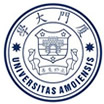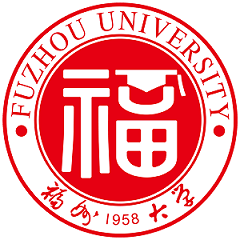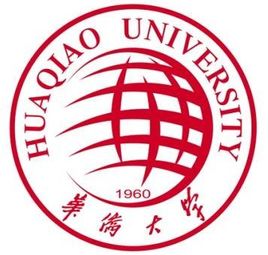2019年天津高考英语(I卷)考试真题
第二部分:阅读理解(共20小题;每小题2. 5分,满分50分)
阅读下列短文,从每题所给的A、B、C、D国个选项中,选出最佳选项。
A
History Fair Competition
Understanding history is vital to understanding ourselves as a people and as a nation.
History is much more than the study of dusty old objects and events long past. It is an essential part of who we are today and who we will become. Thornton Middle School History Fair Competition makes understanding history exciting, engaging, and fun!
This Year’s Theme
All participants must address how communication or transportation technology has promoted the quality of life for Americans throughout history. To many people, technology means computers, hand-held devices, or vehicles that travel to distant planets. However, technology is also the application of scientific knowledge to solve a problem, touching lives in countless ways.
Individuals or groups may enter one of the following categories:
•Performance
•Documentary(纪实作品)
•Essay Writing
Category Requirements
Performance: A dramatic presentation of the topic no more than 10 minutes long. If special clothes are used,they should truly represent a given period.
Documentary: A visual presentation(such as a video,slide show,or computer project)no more than 10 minutes long. A desktop computer, screen, projector, and loudspeakers will be available. Students must provide their presentations on CDs before Friday, March 23.
Essay Writing: An academic paper of 2,000 to 2,500 words. No illustrations(图解)are allowed. Please do not include covers. A list of references must be included.
Important Dates
January 5 Submit a topic proposal to your history teacher. The teacher may require a second proposal if the first is off-topic or unclear.
February 5 Submit a first draft of your essay,performance script(剧本),or documentary highlights.
February 19 A committee of teachers will evaluate materials and give opinions. Students then have an opportunity to improve their products.
March 9 Submit a final draft of your essay.
March 15 Performance and documentary committee preview
March 24 Thornton Middle School History Fair Competition
7:00 A. M—9:00A. M Participants signing in at the gym
10:00 A. M. —6:00PM. Competition and judges’ review
7:00 P.M. Awards ceremony and picnic
36. According to Paragraph 1, what is the major goal of understanding history?
A. To preserve national traditions. B. To prepare for a history competition.
C. To better know the present and future. D. To further explore historical mysteries.
37. What is the theme of this year’s competition?
A. Technology advances science. B. Science interacts with technology.
C. Science has made the study of history easy. D. Technology has improved the life of Americans.
38. Among the items provided by the school for a visual presentation are __________.
A. special clothes and a screen B. a desktop computer and a CD
C. a projector and special clothes D. a desktop computer and loudspeakers
39. What would a participant have to do with an essay of 1,500 words to meet the category requirement?
A. Include more information in the essay. B. Remove the references.
C. Provide a cover for the essay. D. Explain the details with illustrations.
40. What will the committee of teachers do on February 19?
A. Preview performances and documentaries. B. Make comments on the materials.
C. Improve the participant’s first draft. D. Collect a second proposal from the participant.
B
I must have always known reading was very important because the first memories I have as a child deal with books. There was not one night that I don’t remember mom reading me a storybook by my bedside. I was extremely inspired by the elegant way the words sounded.
I always wanted to know what my mom was reading. Hearing mom say, "I can’t believe what’s printed in the newspaper this morning," made me want to grab it out of her hands and read it myself. I wanted to be like my mom and know all of the things she knew. So I carried around a book, and each night, just to be like her, I would pretend to be reading.
This is how everyone learned to read. We would start off with sentences, then paragraphs, and then stories. It seemed an unending journey, but even as a six-year-old girl I realized that knowing how to read could open many doors. When mom said," The C-A-N-D-Y is hidden on the top shelf," I knew where the candy was. My progress in reading raised my curiosity, and I wanted to know everything. I often found myself telling my mom to drive more slowly, so that I could read all of the road signs we passed.
Most of my reading through primary, middle and high school was factual reading. I read for knowledge, and to make A’s on my tests. Occasionally, I would read a novel that was assigned, but I didn’t enjoy this type of reading. I liked facts, things that are concrete. I thought anything abstract left too much room for argument.
Yet, now that I’m growing and the world I once knew as being so simple is becoming more complex, I find myself needing a way to escape. By opening a novel, I can leave behind my burdens and enter into a wonderful and mysterious world where I am now a new character. In these worlds I can become anyone. I don’t have to write down what happened or what technique the author was using when he or she wrote this. I just read to relax.
We’re taught to read because it’s necessary for much of human understanding. Reading is a vital part of my life. Reading satisfies my desire to keep learning. And I’ve found that the possibilities that lie within books are limitless.
标签:
全部评论
本文转载至互联网,不代表福建高考网立场,如有侵权,请联系官方删除
注:通过加密传输不会对外展示联系方式
-
福建省2022年成人高等学校招生全国统一考试有关事项补充公告 福建省2022年成人高等学校招生全国统一考试将于11月5日-6日举行,为确保考生顺利参加考试,现将有关事项补充公告如下: 1.疫情防控实行属地管理,请考生密切关注考点所在地防疫相关要求,遵守当地疫情防控部门的有关规定,以免影响考试。特别提醒福州考区的考生请留意福州市教育局即将发送的短信通知。 2022-11-01
-
福州考区2022年成人高考有关事项公告(三) 福州考区考生: 根据福州疫情防控形势,现对本次考试有关事项公告如下: 1.请尚未重新打印准考证的考生,即时凭账号、密码登录福建省教育考试院网站自行打印准考证,以免影响正常考试。 2022-11-04
-
《福建省普通高校专升本招考类别和考试说明》公布 为做好我省普通高等学校专升本考试招生工作,更好地适应经济社会发展对人才培养的需要,提高人才选拔质量,省教育厅对福建省普通高校专升本考试招考类别和考试科目进行了调整,并组织编写《福建省普通高校专升本考试说明》,现予以公布。 自2023年起,我省专升本考试按调整后的《福建省普通高校专升本招考类别及考试科目表》执行,《福建省普通高校专升本考试说明》作为考试招生的命题依据。 2022-11-07
-
2023年福建省普通高校招生体育类专业省级统一考试考生健康申明卡及安全考试承诺书 2023年福建省普通高校招生体育类专业省级统一考试考生健康申明卡及安全考试承诺书 2022-11-10
-
湖南城建职业技术学院——风景园林设计 【培养目标】本专业主要培养热爱园林绿化事业,具有甘于奉献、独立思考、实事求是精神,具有良好的职业道德和创新精神,掌握风景园林景观规划设计、园林植物栽培养护的知识和技能,具备园林绿地规划设计能力、园林植物栽培与养护能力、CAD/3DMAX软件应用能力、园林施工与管理的能力、语言文字表达能力、自我管理能力、创新能力,培养德、智、体等方面全面发展的高端高级技术应用型人才。 2022-12-23
-
湖南城建职业技术学院——道路与桥梁工程技术 本专业培养德、智、体、美全面发展,具有良好职业道德和人文素养,掌握道路桥梁施 工、检测的基本知识,具备道路桥梁施工与管理能力,从事道桥工程施工、检测、造价、公 路工程监理、桥隧检测等工作的高素质技术技能人才。 2022-12-27
-
江西电力职业技术学院专业介绍-电力系统自动化技术 江西电力职业技术学院专业介绍-电力系统自动化技术 2023-02-02
-
厦门理工学院计算机与信息工程学院之网络工程专业介绍 网络工程(信息安全)专业为厦门理工学院校级特色专业。培养具有扎实计算机科学与技术学科理论基础、具备网络技术领域专业知识和基本技能,在计算机和网络领域的工程实践和应用方面受到良好训练,具有创新创业精神和能力,具有良好的科学文化素养、国际视野和团队合作精神,具有深厚通信背景、可持续发展能力强的高水平工程技术人才。 2024-07-30
-
机械五虎是什么? 虽然如今互联网发展迅速,但机械专业做为工科当中最老的专业之一,如今在社会当中,仍然有不可取代的作用。小到一颗螺丝钉,大到航空航天,机械专业仍然发挥着至关重要的作用。所以,时至今日,机械专业仍然是最热门的工科专业之一。那么我国现在机械强校有哪些呢?今天我们就一起来看一看机械专业哪家强? 2023-01-10
-
艺考落榜还有什么其他出路? 随着艺考人数的逐年增加,竞争力也是越来也大了,因而每年都有部分艺考专业的学生未过线,那么对于艺考落榜的艺术生来说还有什么其他出路呢?下面就一起来看看吧。 2023-07-20
-
高考志愿补录后又滑档了怎么办? 高考分数线公布之后,各个学校也会公布自己的最低录取分数线,不同批次的学生在志愿填报工作结束之后就会陆续收到学校的录取通知书。而在填报志愿的过程中,滑档的学生就可以开始着手准备补录工作了。但如果考生在高考志愿补录后又滑档了又该怎么办呢?下面就一起来探讨一下吧。 2023-10-08
-
福建高考物理200分能上大学吗? 现如今大学教育的门槛越来越低,从一般意义上而言,只要你愿意进行进一步学习,还是有很大机会就读一所专科院校,尽管分数不是特别高,对于福建高考物理组考200多分的学生来说,毫无疑问,就现在国家鼓励学生进一步学习深造并掌握一门专业技术的大环境下,还是有很大概率上一所专科院校。 2022-11-11
-
2024福建高考语文真题(新高考I卷) 2024年福建高考语文已于6月7日结束,福建高考语文采用的是全国新高考I卷,考试真题与答案已经公布,考生可以通过查阅真题和答案,了解自己的考试情况,为接下来的备考和志愿填报做好准备。更多高考资讯、高校最新政策、历年高考录取分数线、志愿填报等信息,请关注福建高考网。 2024-06-08
-
2024福建高考数学真题(新高考I卷) 2024年福建高考数学已于6月7日结束,福建高考数学采用的是全国新高考I卷,考试真题与答案已经公布,考生可以通过查阅真题和答案,了解自己的考试情况,为接下来的备考和志愿填报做好准备。更多高考资讯、高校最新政策、历年高考录取分数线、志愿填报等信息,请关注福建高考网。 2024-06-08
-
2024福建高考物理真题 2024年福建高考物理已于6月8日结束,福建高考物理采用的是福建卷,考试真题与答案已经公布,考生可以通过查阅真题和答案,了解自己的考试情况,为接下来的备考和志愿填报做好准备。更多高考资讯、高校最新政策、历年高考录取分数线、志愿填报等信息,请关注福建高考网。 2024-06-08
-
2024福建高考政治真题 2024年福建高考政治已经顺利结束,福建高考政治采用的是福建卷,考试真题与答案已经公布,考生可以通过查阅真题和答案,了解自己的考试情况,为接下来的备考和志愿填报做好准备。更多高考资讯、高校最新政策、历年高考录取分数线、志愿填报等信息,请关注福建高考网。 2024-06-14
-
福建省教育考试院发布视频解读高考平行志愿政策 出分日临近,如何填报志愿学生和家长纠结的问题。我省已实施平行志愿投档模式多年,但对于初次接触志愿填报的人而言,这一模式仍是比较陌生的,一不小心就会造成“高分低就”甚至落榜的遗憾。今天小编为大 2020-07-14
-
厦门医学院2019年高考录取规则 【录取原则】1、学校招生录取工作遵循“公平竞争、公开选拔、公正透明、择优录取”的原则。2、学校招生录取工作遵循生源所在省(市、自治区)教育厅和省(市、自治区)招生委员会制定关于2019年普通高考招生录 2019-06-05
-
宁德师范学院2019年高考录取规则 【专业录取要求】(一)外语语种要求:英语、商务英语专业只招收英语语种考生,其它专业不限考生的外语语种。非外语专业学生进校后只以英语作为公共基础外语安排教学。(二)外语成绩要求:报考英语、商务英语专业考生须 2019-06-05
-
龙岩学院2019年高考录取规则 第十七条 考生要求专业体检受限标准参照《普通高等学校招生体检工作指导意见》及有关补充规定执行。患有下列疾病者,学校可以不予录取:1.严重心脏病(先天性心脏病经手术治愈,或房室间隔缺损分流量少,动脉导管未闭 2019-06-05
-
2022年广州现代信息工程职业技术学院新生 录取查询 2022年广州现代信息工程职业技术学院新生 录取查询 2022-10-10
-
成都理工大学2022年录取查询 成都理工大学2022年录取查询 2022-10-21
-
珠海城市职业技术学院2022录取结果查询 珠海城市职业技术学院2022录取结果查询 2022-10-24
-
莆田学院2023年高职招考、专升本录取情况 莆田学院2023年高职招考、专升本录取情况 2023-10-08
-
成都锦城学院2023届毕业生(现场)春季双选会邀请函 成都锦城学院2023届毕业生(现场)春季双选会邀请函 2023-04-26
-
成都体育学院2023年第一次入驻孵化园创新创业项目公示 成都体育学院2023年第一次入驻孵化园创新创业项目公示 2023-04-27
-
同济大学浙江学院2023年德语专业就业情况 同济大学浙江学院2023年德语专业就业情况 2023-07-13
-
绍兴文理学院元培学院翻译专业人才培养成果 近三年翻译专业毕业生平均就业率97%以上,同时多名学生成功考取广东外语外贸大学、浙江师范大学、宁波大学、浙江工商大学等高校研究生,并继续攻读博士学位。 2023-07-30
今讲高考升学
-
官方企业微信
-
官方微信公众号
-
志愿填报小程序





